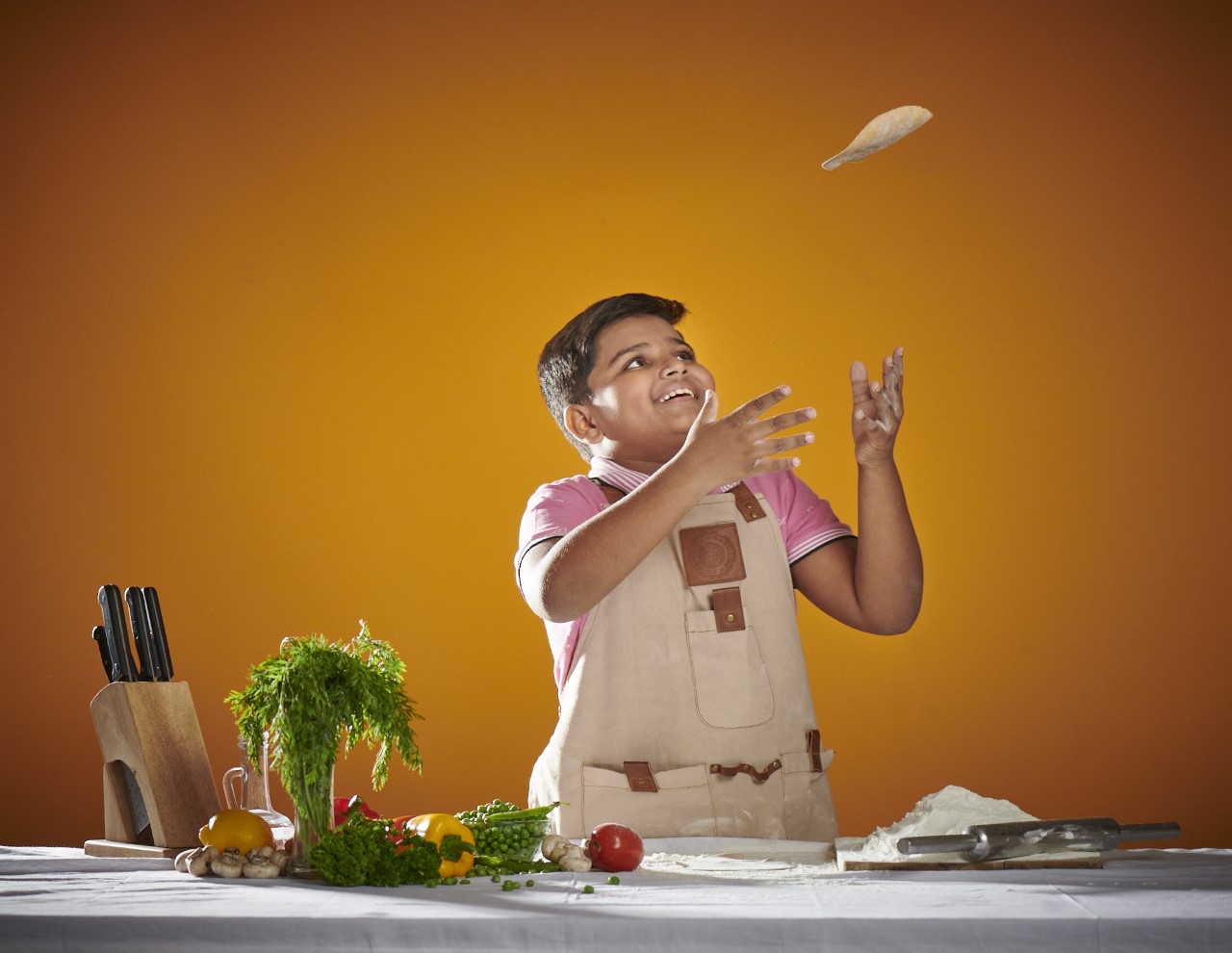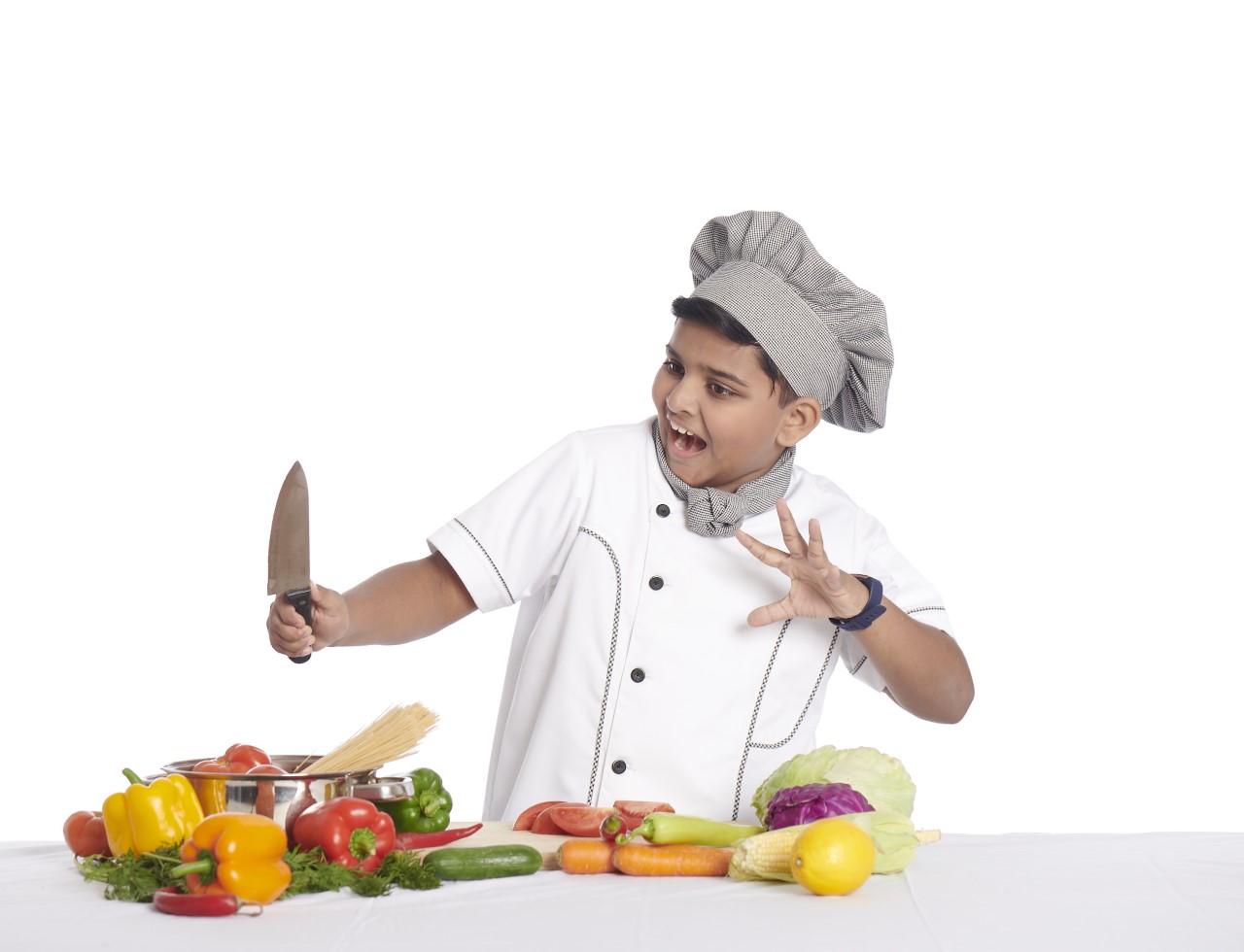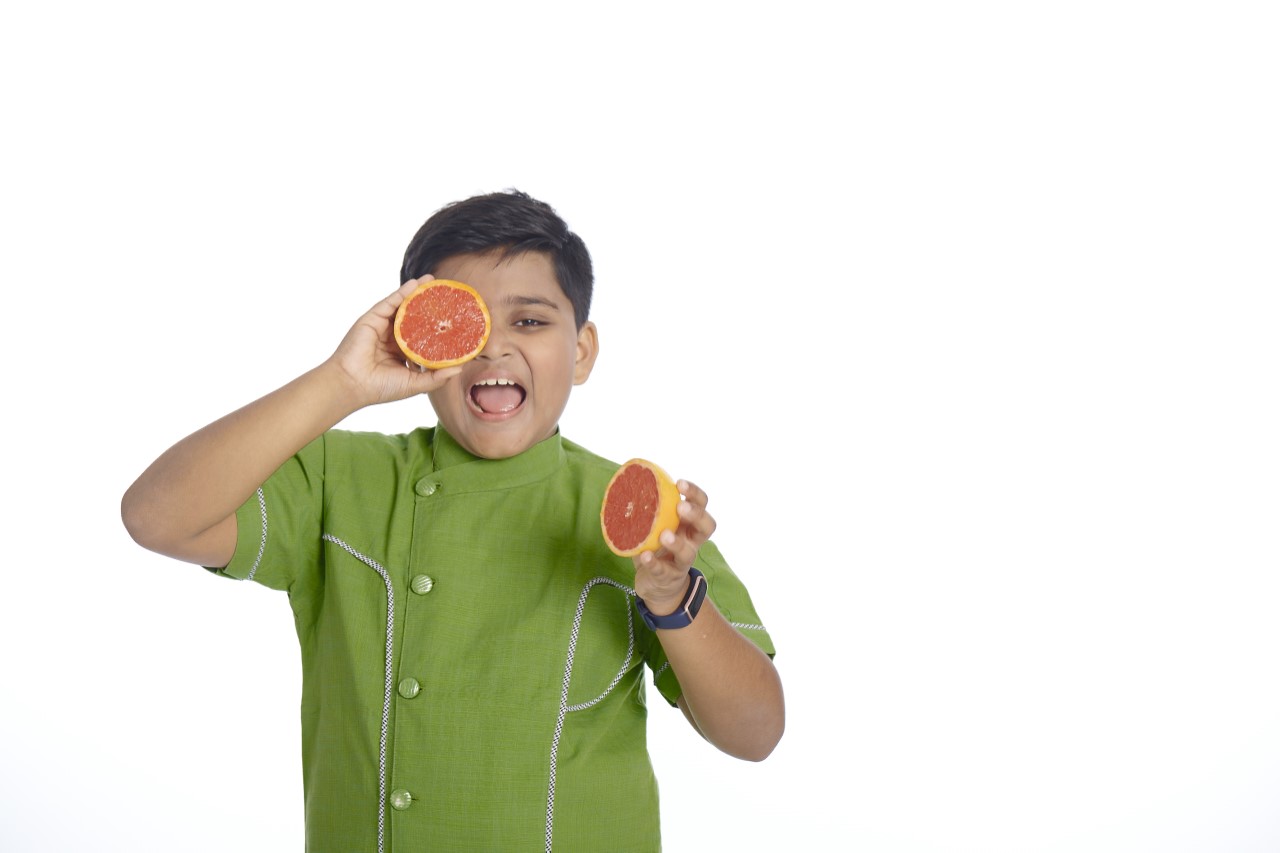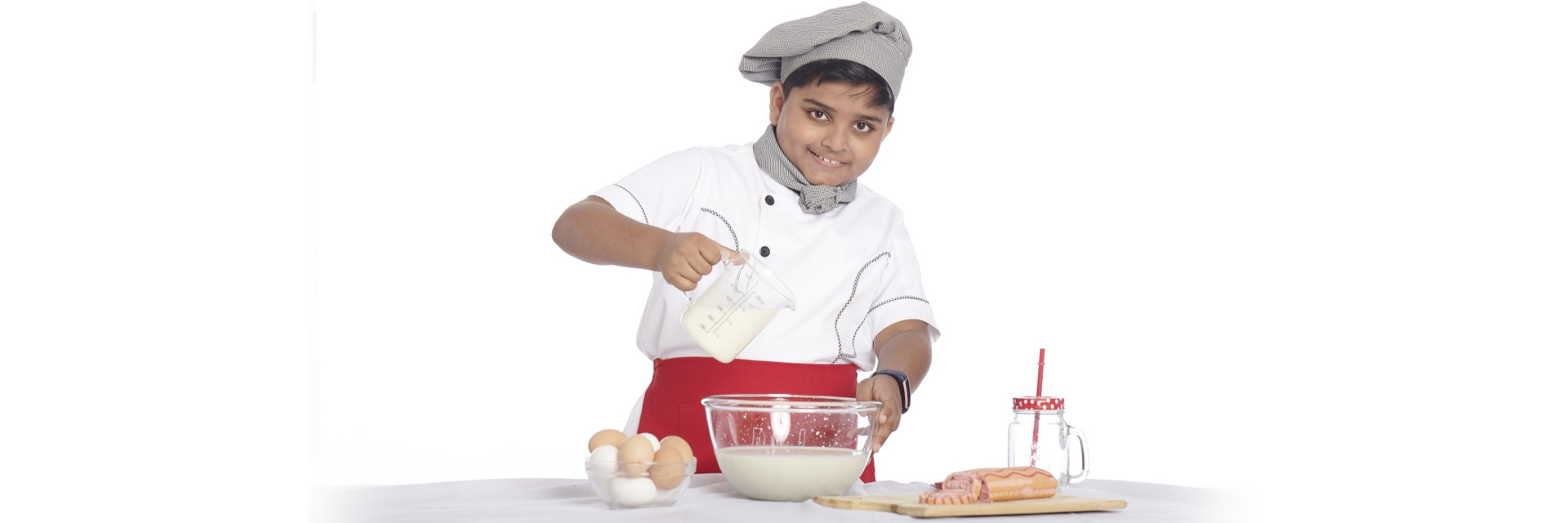(March 14, 2022) Not many of us could have envisioned Ellen DeGeneres learning to make puttu, Kerala’s breakfast dish. But this did happen in 2016, when the American talk show host stood smilingly beside her tutor, the very earnest Chef Nihal Raj or ‘Kicha’, who was only six years old when he made an appearance on The Ellen DeGeneres Show. At the time when his peers were still fumbling with their spoons, the young chef was whipping up tender coconut pudding and garlic fried rice. All while his YouTube following continued to grow.
The continued rise of young Chef Kicha
He’s 12 now and eight years into his culinary career. With an eloquence and ease perhaps gained over nearly a decade of being in front of the camera, the young chef Nihal Raj explains his nickname, Kicha. “It’s another name for Krishna. Since it’s my grandfather’s name, my father decided to call me Kicha. My mother and sister named me Nihal because they thought it suited me,” he says.
Despite having embarked on his professional journey at a tender age, Kicha has managed to hold on to some amount of childlike whimsy, and his video on a Mickey Mouse mango ice cream is proof of it. The child prodigy bagged a $2000 deal with Facebook for rights to the video, after it caught the attention of an affiliated company that makes videos for the social media giant. As for the earnings – Kicha donated half the amount to autistic children and used the rest to expand, upgrade his camera and provide better visual experiences to his viewers. On YouTube, the young chef’s channel, KichaTubeHD boasts of 44k subscribers. “The videos are my hobby and my passion,” says Kicha in a conversation with Global Indian.

Off to a headstart…
The young chef’s fascination for cooking developed as he watched his mother in the kitchen, when he was around three years old. “My mother is a great cook. She loves to cook and bake,” recalls Kicha. “I would watch her make something new every day and she would give me small tasks like, ‘separate this from that’ and so on. My passion for cooking grew out of these little chores,” he adds. His parents, while they encouraged him, only allowed kid-friendly recipes. “But you’re not working with sharp knives or fire or anything, right,” DeGeneres asked him. “Yeah, that means I am not an expert, but after I turn nine, I’ll be an expert,” was his prompt response.


As promised, the rules were lifted when he turned nine and Kicha received full access to the kitchen. “Before that, there was always one adult present to supervise,” explains the self-taught young chef, who learnt the trick of the trade by watching his parents and other chefs on social media.
A celebrity in his own right, Chef Nihal Raj, or Kicha, as he is fondly known, is usually flooded with invitations to events, from happenings in the culinary world to delivering keynote addresses as well as book and product launches. Kicha has been associated with brands like Nestle and often reviews products.
Kicha at home
The younger child of Ruby and Rajagopal, he has a sister who works in the US. If Kicha enjoys cooking up a storm in the kitchen, he equally enjoys devouring the food. And unlike most kids, who love their mother’s cooking, Kicha says, “My mother loves the omelette and French toast I usually make for breakfast.” He’s also an enthusiastic student and a self-professed tech head. “I love to learn about computers in school, as well as gadgets and technology in general,” Kicha exclaims. “I love video editing, photo editing, graphic design and solving the Rubik’s Cube. My record is 15 seconds,” beams Kicha with pride.


Most interesting is his answer to the stock question, “What do you want to be when you grow up?” In Kicha’s case, the answer seems obvious enough but he only grins, saying, “I will let older Kicha decide whether he wants to be a professional cook or choose something else. But even 30 years from now, I can bet you, I won’t have stopped cooking. It’s a part of my life, a part of my personality and a part of me.”



